2001: A Space Odyssey is a soundtrack album to the film of the same name, released in 1968. The soundtrack is known for its use of many classical and orchestral pieces, and credited for giving many classical pieces resurgences in popularity, such as Johann Strauss II's 1866 Blue Danube Waltz, Richard Strauss' symphonic poem Also sprach Zarathustra (inspired by the writings of Friedrich Nietzsche), and György Ligeti's Atmosphères. The soundtrack has been re-issued multiple times, including a 1996 version and a digitally remastered version in 2010.
From very early in production, Kubrick decided that he wanted the film to be a primarily nonverbal experience that did not rely on the traditional techniques of narrative cinema, and in which music would play a vital role in evoking particular moods. About half the music in the film appears either before the first line of dialogue or after the final line. Almost no music is heard during any scenes with dialogue.
The film is notable for its innovative use of classical music taken from existing commercial recordings. Most feature films then and now are typically accompanied by elaborate film scores or songs written specially for them by professional composers. In the early stages of production, Kubrick had actually commissioned a score for 2001 from Hollywood composer Alex North, who had written the score for Spartacus and also worked on Dr. Strangelove. However, during postproduction, Kubrick chose to abandon North's music in favor of the now-familiar classical pieces he had earlier chosen as "guide pieces" for the soundtrack. North did not know of the abandonment of the score until after he saw the film's premiere screening.
Also engaged to score the film was composer Frank Cordell. Cordell stated in interviews that the score would primarily consist of arrangements of Gustav Mahler works. This score remains unreleased. Like North's score, Cordell's work was recorded at the now demolished Anvil, Denham studios.
2001 is particularly remembered for using pieces of Johann Strauss II's best-known waltz, The Blue Danube, during the extended space-station docking and Lunar landing sequences. This is the result of the association that Kubrick made between the spinning motion of the satellites and the dancers of waltzes. It also makes use of the opening from the Richard Strauss tone poem Also sprach Zarathustra performed by the Vienna Philharmonic conducted by Herbert von Karajan. The use of Strauss's Zarathustra may be a reference to the theme of mankind's eventual replacement by overmen (Übermensch) in Nietzsche's work Thus Spoke Zarathustra. Gayane's Adagio from Aram Khachaturian's Gayane ballet suite is heard during the sections that introduce Bowman and Poole aboard the Discovery, conveying a somewhat lonely and mournful quality.
In addition to the majestic yet fairly traditional compositions by the two Strausses and Khachaturian, Kubrick used four highly modernistic compositions by György Ligeti that employ micropolyphony, the use of sustained dissonant chords that shift slowly. This technique was pioneered in Atmosphères, the only Ligeti piece heard in its entirety in the film. Ligeti admired Kubrick's film but, in addition to being irritated by Kubrick's failure to obtain permission directly from him, he was offended that his music was used in a film soundtrack shared by composers Johann Strauss II and Richard Strauss. Other music used is Ligeti's Lux Aeterna, the second movement of his Requiem and an electronically altered form of his Aventures, the last of which was also used without Ligeti's permission and is not listed in the film's credits.
HAL's version of the popular song "Daisy Bell" (referred to by HAL as "Daisy" in the film) was inspired by a computer-synthesized arrangement by Max Mathews, which Arthur C. Clarke had heard in 1962 at the Bell Laboratories Murray Hill facility when he was, coincidentally, visiting friend and colleague John R. Pierce. At that time, a speech synthesis demonstration was being performed by physicist John Larry Kelly, Jr., by using an IBM 704 computer to synthesize speech. Kelly's voice recorder synthesizer vocoder recreated the song "Daisy Bell" ("Bicycle Built For Two"); Max Mathews provided the musical accompaniment. Arthur C. Clarke was so impressed that he later used it in the screenplay and novel.
Many non-English language versions of the film do not use the song "Daisy". In the French soundtrack, HAL sings the French folk song "Au clair de la lune" while being disconnected. In the German version, HAL sings the children's song "Hänschen klein" ("Little Johnny"), and in the Italian version HAL sings "Giro giro tondo" (Ring a Ring o' Roses).
A recording of British light music composer Sidney Torch's "Off Beat Moods Part 1" was chosen by Kubrick as the theme for the fictitious BBC news programme "The World Tonight" seen aboard the Discovery.
On June 25, 2010, a version of the film specially remastered by Warner Bros, without the music soundtrack, opened the three hundred and fiftieth anniversary celebrations of the Royal Society at Southbank Centre in cooperation with the British Film Institute. The score was played live by the Philharmonia Orchestra and Choir. This has become a recurring event at the Southbank Centre's Royal Festival Hall, with repeat performances in 2011 and on October 2, 2016. These later two performances were played by the London Philharmonic Orchestra and sung by the Philharmonia Choir, the latter as part of a more general programme of similar events entitled "Film Scores Live."
On June 14, 2013, a repeat presentation of the film accompanied by live orchestra and choir was performed at Symphony Hall in Birmingham, again accompanied by the Philharmonia Orchestra conducted by Benjamin Wallfisch together with the choir Ex Cathedra.
A presentation of the film accompanied by live orchestra and choir premiered in the United States on August 18, 2015, at The Hollywood Bowl in Hollywood, California, accompanied by the Los Angeles Philharmonic conducted by Brad Lubman together with the choir Los Angeles Master Chorale.
2001 is particularly remembered for the use of the opening theme from the Richard Strauss tone poem Also sprach Zarathustra (Usually translated as "Thus Spake Zarathustra" or "Thus Spoke Zarathustra"[8] where the soundtrack album gives the former, the movie's credits give the latter). The theme is used both at the start and at the conclusion of the film. Also memorable in the film is its use of parts of Johann Strauss II's best-known waltz, An der schönen blauen Donau (On the Beautiful Blue Danube), during the extended space-station docking. Composers Richard and Johann Strauss are not related.
In addition to the majestic yet fairly traditional compositions by the two Strausses and Aram Khachaturian, Kubrick used four highly modernistic compositions by György Ligeti which employ micropolyphony, the use of sustained dissonant chords that shift slowly over time. This technique was pioneered in Atmosphères, the only Ligeti piece heard in its entirety in the film. Ligeti admired Kubrick's film, but in addition to being irritated by Kubrick's failure to obtain permission directly from him, he was offended that his music was used in a film soundtrack shared by composers Johann and Richard Strauss.
The Richard and Johann Strauss pieces and György Ligeti's Requiem (the Kyrie section) act as recurring motifs in the film's storyline. Richard Strauss' Also Sprach Zarathustra is first heard in the opening title which juxtaposes the Sun, Earth, and Moon. It is subsequently heard when an ape first learns to use a tool, and when Bowman is transformed into the Star-Child at the end of the film. Zarathustra thus acts as a bookend for the beginning and end of the film, and as a motif signifying evolutionary transformations, first from ape to man, then from man to Star-Child. This piece was originally inspired by the philosopher Nietzsche's book of the same name which alludes briefly to the relationship of ape to man and man to Superman. The Blue Danube appears in two intricate and extended space travel sequences as well as the closing credits. The first of these is the particularly famous sequence of the PanAm space plane docking at Space Station V. Ligeti's Requiem is heard three times, all of them during appearances of the monolith. The first is its encounter with apes just before the Zarathustra-accompanied ape discovery of the tool. The second is the monolith's discovery on the Moon, and the third is Bowman's approach to it around Jupiter just before he enters the Star Gate. This last sequence with the Requiem has much more movement in it than the first two, and it transitions directly into the music from Ligeti's Atmosphères which is heard when Bowman actually enters the Star Gate. No music is heard during the monolith's much briefer final appearance in Dave Bowman's celestial bedroom which immediately precedes the Zarathustra-accompanied transformation of Bowman into the Star-Child. A shorter excerpt from Atmosphères is heard during the pre-credits prelude and film intermission, which are not in all copies of the film. The adagio movement "Carpet Weavers" from Aram Khatchaturian's Gayane ballet suite no. 3. is heard during the sections that introduce Bowman and Poole aboard the Discovery conveying a somewhat lonely and mournful quality. Other music used is Ligeti's Lux Aeterna and an electronically altered form of his Aventures, the last of which was so used without Ligeti's permission and is not listed in the film's credits.
Since the film, Also sprach Zarathustra has been used in many other contexts. It was used by the BBC and by CTV in Canada as the introductory theme music for their television coverage of the Apollo space missions, as well as stage entrance music for multiple acts including Elvis Presley late in his career. Jazz and rock variants of the theme have also been composed, the most well known being the 1972 arrangement by Eumir Deodato (itself used in the 1979 film Being There). Both Zarathustra and The Blue Danube have been used in numerous parodies of both the film itself and science fiction/space travel stories in general. HAL's "Daisy Bell" also has been frequently used in the comedy industry to denote both humans and machines in an advanced stage of madness. - Wikipedia
From very early in production, Kubrick decided that he wanted the film to be a primarily nonverbal experience that did not rely on the traditional techniques of narrative cinema, and in which music would play a vital role in evoking particular moods. About half the music in the film appears either before the first line of dialogue or after the final line. Almost no music is heard during any scenes with dialogue.
The film is notable for its innovative use of classical music taken from existing commercial recordings. Most feature films then and now are typically accompanied by elaborate film scores or songs written specially for them by professional composers. In the early stages of production, Kubrick had actually commissioned a score for 2001 from Hollywood composer Alex North, who had written the score for Spartacus and also worked on Dr. Strangelove. However, during postproduction, Kubrick chose to abandon North's music in favor of the now-familiar classical pieces he had earlier chosen as "guide pieces" for the soundtrack. North did not know of the abandonment of the score until after he saw the film's premiere screening.
Also engaged to score the film was composer Frank Cordell. Cordell stated in interviews that the score would primarily consist of arrangements of Gustav Mahler works. This score remains unreleased. Like North's score, Cordell's work was recorded at the now demolished Anvil, Denham studios.
2001 is particularly remembered for using pieces of Johann Strauss II's best-known waltz, The Blue Danube, during the extended space-station docking and Lunar landing sequences. This is the result of the association that Kubrick made between the spinning motion of the satellites and the dancers of waltzes. It also makes use of the opening from the Richard Strauss tone poem Also sprach Zarathustra performed by the Vienna Philharmonic conducted by Herbert von Karajan. The use of Strauss's Zarathustra may be a reference to the theme of mankind's eventual replacement by overmen (Übermensch) in Nietzsche's work Thus Spoke Zarathustra. Gayane's Adagio from Aram Khachaturian's Gayane ballet suite is heard during the sections that introduce Bowman and Poole aboard the Discovery, conveying a somewhat lonely and mournful quality.
In addition to the majestic yet fairly traditional compositions by the two Strausses and Khachaturian, Kubrick used four highly modernistic compositions by György Ligeti that employ micropolyphony, the use of sustained dissonant chords that shift slowly. This technique was pioneered in Atmosphères, the only Ligeti piece heard in its entirety in the film. Ligeti admired Kubrick's film but, in addition to being irritated by Kubrick's failure to obtain permission directly from him, he was offended that his music was used in a film soundtrack shared by composers Johann Strauss II and Richard Strauss. Other music used is Ligeti's Lux Aeterna, the second movement of his Requiem and an electronically altered form of his Aventures, the last of which was also used without Ligeti's permission and is not listed in the film's credits.
HAL's version of the popular song "Daisy Bell" (referred to by HAL as "Daisy" in the film) was inspired by a computer-synthesized arrangement by Max Mathews, which Arthur C. Clarke had heard in 1962 at the Bell Laboratories Murray Hill facility when he was, coincidentally, visiting friend and colleague John R. Pierce. At that time, a speech synthesis demonstration was being performed by physicist John Larry Kelly, Jr., by using an IBM 704 computer to synthesize speech. Kelly's voice recorder synthesizer vocoder recreated the song "Daisy Bell" ("Bicycle Built For Two"); Max Mathews provided the musical accompaniment. Arthur C. Clarke was so impressed that he later used it in the screenplay and novel.
Many non-English language versions of the film do not use the song "Daisy". In the French soundtrack, HAL sings the French folk song "Au clair de la lune" while being disconnected. In the German version, HAL sings the children's song "Hänschen klein" ("Little Johnny"), and in the Italian version HAL sings "Giro giro tondo" (Ring a Ring o' Roses).
A recording of British light music composer Sidney Torch's "Off Beat Moods Part 1" was chosen by Kubrick as the theme for the fictitious BBC news programme "The World Tonight" seen aboard the Discovery.
On June 25, 2010, a version of the film specially remastered by Warner Bros, without the music soundtrack, opened the three hundred and fiftieth anniversary celebrations of the Royal Society at Southbank Centre in cooperation with the British Film Institute. The score was played live by the Philharmonia Orchestra and Choir. This has become a recurring event at the Southbank Centre's Royal Festival Hall, with repeat performances in 2011 and on October 2, 2016. These later two performances were played by the London Philharmonic Orchestra and sung by the Philharmonia Choir, the latter as part of a more general programme of similar events entitled "Film Scores Live."
On June 14, 2013, a repeat presentation of the film accompanied by live orchestra and choir was performed at Symphony Hall in Birmingham, again accompanied by the Philharmonia Orchestra conducted by Benjamin Wallfisch together with the choir Ex Cathedra.
A presentation of the film accompanied by live orchestra and choir premiered in the United States on August 18, 2015, at The Hollywood Bowl in Hollywood, California, accompanied by the Los Angeles Philharmonic conducted by Brad Lubman together with the choir Los Angeles Master Chorale.
2001 is particularly remembered for the use of the opening theme from the Richard Strauss tone poem Also sprach Zarathustra (Usually translated as "Thus Spake Zarathustra" or "Thus Spoke Zarathustra"[8] where the soundtrack album gives the former, the movie's credits give the latter). The theme is used both at the start and at the conclusion of the film. Also memorable in the film is its use of parts of Johann Strauss II's best-known waltz, An der schönen blauen Donau (On the Beautiful Blue Danube), during the extended space-station docking. Composers Richard and Johann Strauss are not related.
In addition to the majestic yet fairly traditional compositions by the two Strausses and Aram Khachaturian, Kubrick used four highly modernistic compositions by György Ligeti which employ micropolyphony, the use of sustained dissonant chords that shift slowly over time. This technique was pioneered in Atmosphères, the only Ligeti piece heard in its entirety in the film. Ligeti admired Kubrick's film, but in addition to being irritated by Kubrick's failure to obtain permission directly from him, he was offended that his music was used in a film soundtrack shared by composers Johann and Richard Strauss.
The Richard and Johann Strauss pieces and György Ligeti's Requiem (the Kyrie section) act as recurring motifs in the film's storyline. Richard Strauss' Also Sprach Zarathustra is first heard in the opening title which juxtaposes the Sun, Earth, and Moon. It is subsequently heard when an ape first learns to use a tool, and when Bowman is transformed into the Star-Child at the end of the film. Zarathustra thus acts as a bookend for the beginning and end of the film, and as a motif signifying evolutionary transformations, first from ape to man, then from man to Star-Child. This piece was originally inspired by the philosopher Nietzsche's book of the same name which alludes briefly to the relationship of ape to man and man to Superman. The Blue Danube appears in two intricate and extended space travel sequences as well as the closing credits. The first of these is the particularly famous sequence of the PanAm space plane docking at Space Station V. Ligeti's Requiem is heard three times, all of them during appearances of the monolith. The first is its encounter with apes just before the Zarathustra-accompanied ape discovery of the tool. The second is the monolith's discovery on the Moon, and the third is Bowman's approach to it around Jupiter just before he enters the Star Gate. This last sequence with the Requiem has much more movement in it than the first two, and it transitions directly into the music from Ligeti's Atmosphères which is heard when Bowman actually enters the Star Gate. No music is heard during the monolith's much briefer final appearance in Dave Bowman's celestial bedroom which immediately precedes the Zarathustra-accompanied transformation of Bowman into the Star-Child. A shorter excerpt from Atmosphères is heard during the pre-credits prelude and film intermission, which are not in all copies of the film. The adagio movement "Carpet Weavers" from Aram Khatchaturian's Gayane ballet suite no. 3. is heard during the sections that introduce Bowman and Poole aboard the Discovery conveying a somewhat lonely and mournful quality. Other music used is Ligeti's Lux Aeterna and an electronically altered form of his Aventures, the last of which was so used without Ligeti's permission and is not listed in the film's credits.
Since the film, Also sprach Zarathustra has been used in many other contexts. It was used by the BBC and by CTV in Canada as the introductory theme music for their television coverage of the Apollo space missions, as well as stage entrance music for multiple acts including Elvis Presley late in his career. Jazz and rock variants of the theme have also been composed, the most well known being the 1972 arrangement by Eumir Deodato (itself used in the 1979 film Being There). Both Zarathustra and The Blue Danube have been used in numerous parodies of both the film itself and science fiction/space travel stories in general. HAL's "Daisy Bell" also has been frequently used in the comedy industry to denote both humans and machines in an advanced stage of madness. - Wikipedia

ARTIST/COMPOSER
Various Artists
LABEL
LABEL
MGM Records - S1E-13 ST X
FORMAT
FORMAT
LP, Album
COUNTRY
COUNTRY
US
RELEASED
RELEASED
© 1968
TRACK LISTING
01. Also Sprach Zarathustra (Thus Spake Zarathustra)
02. Requiem For Soprano, Mezzo-Soprano, 2 Mixed Choirs and Orchestra03. Lux Aeterna
04. The Blue Danube
05. Gayne Ballet Suite (Adagio)
06. Atmospheres
07. The Blue Danube
08. Also Sprach Zarathustra (Thus Spake Zarathustra)

ARTIST/COMPOSER
Various Artists
LABEL
LABEL
EMI/TCM Turner Classic Movies Music - 7243 8 55322 2 1
FORMAT
FORMAT
CD, Album, Reissue, Remastered
COUNTRY
COUNTRY
UK & Europe
RELEASED
RELEASED
© 1996
TRACK LISTING
The Music As It Appears In The Film
01. Overture: Atmospheres
02. Main Title: Also Sprach Zarathustra (Thus Spake Zarathustra)
03. Requiem For Soprano, Mezzo Soprano, Two Mixed Choirs & Orchestra
04. The Blue Danube (Excerpt)
05. Lux Aeterna
06. Gayane Ballet Suite (Adagio)
07. Jupiter and Beyond
08. Also Sprach Zarathustra (Thus Spake Zarathustra)
09. The Blue Danube (Reprise)
Supplemental Material
10. Also Sprach Zarathustra (Thus Spake Zarathustra)
11. Lux Aeterna
12. Adventures (Unaltered)
13. HAL 9000


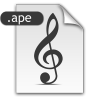
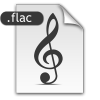
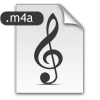
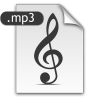
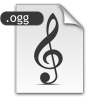
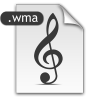
Hope you are well and out of hospital! I'm afraid these links for 2001 don't work. Thanks very much for your wonderful blog. =)
ReplyDelete